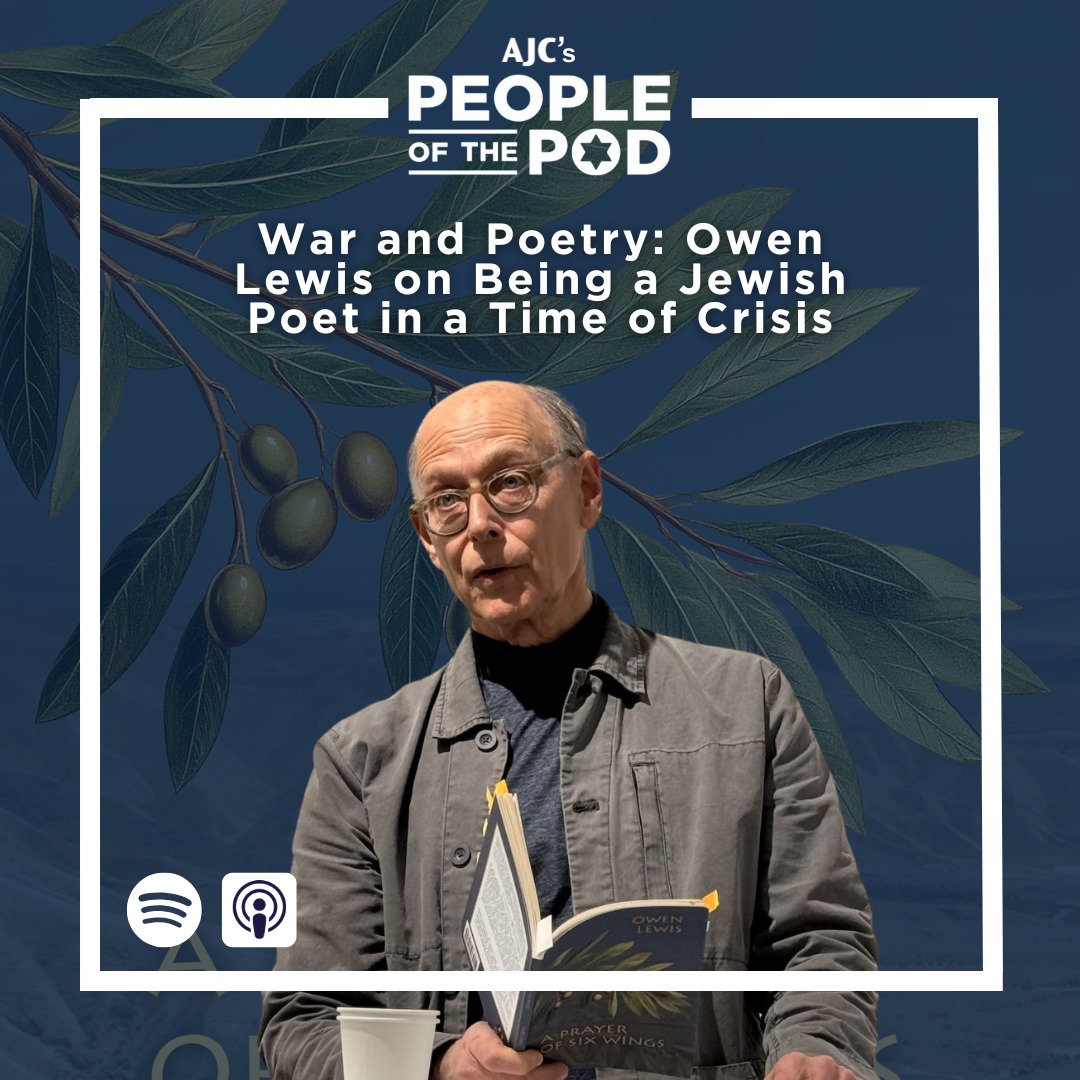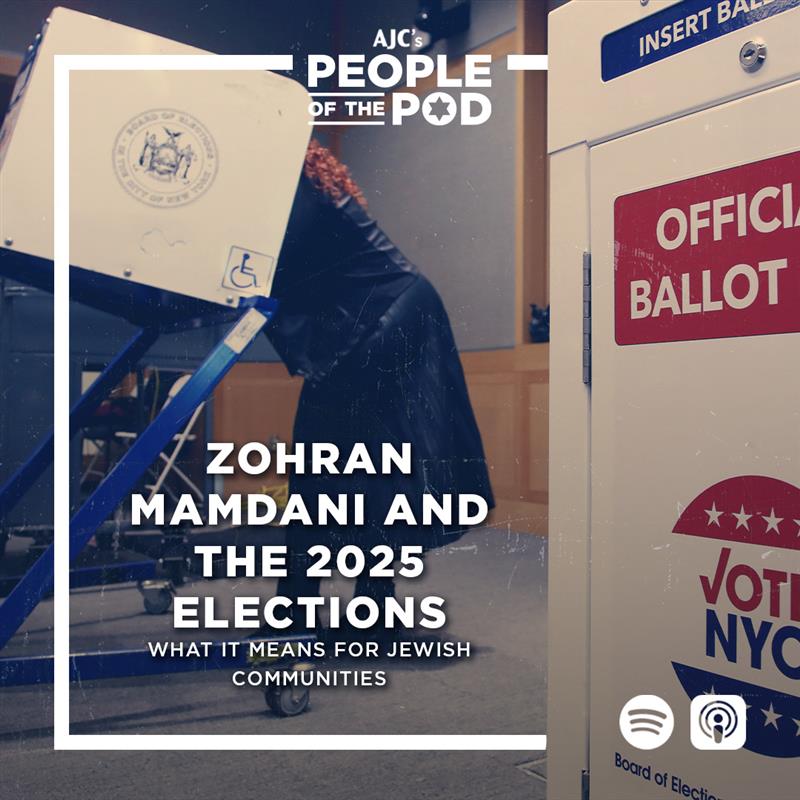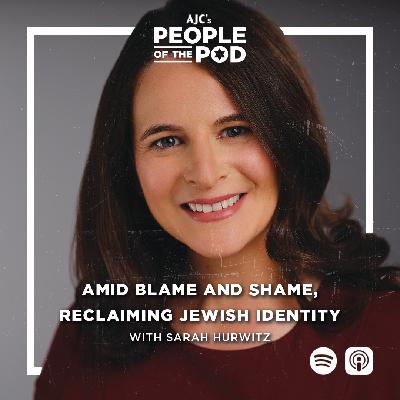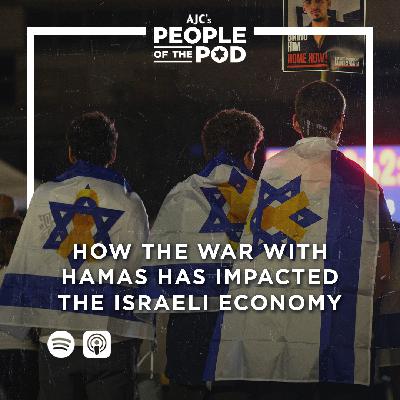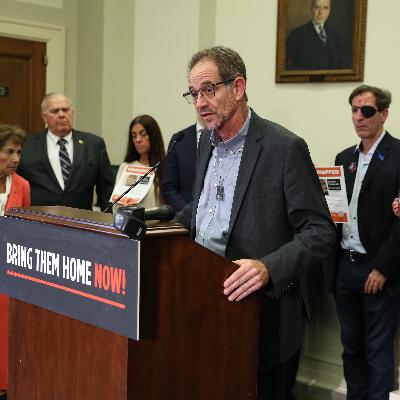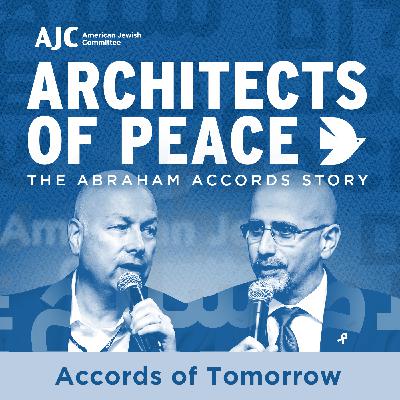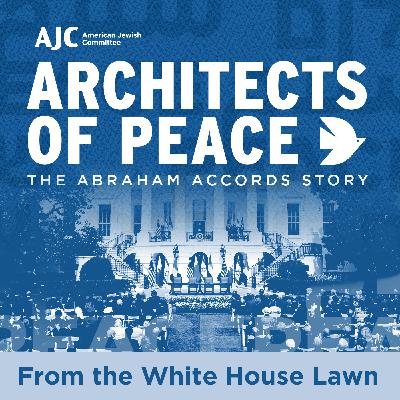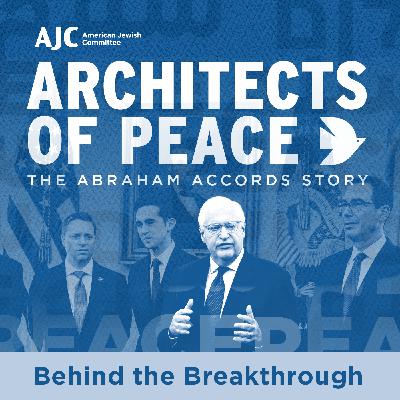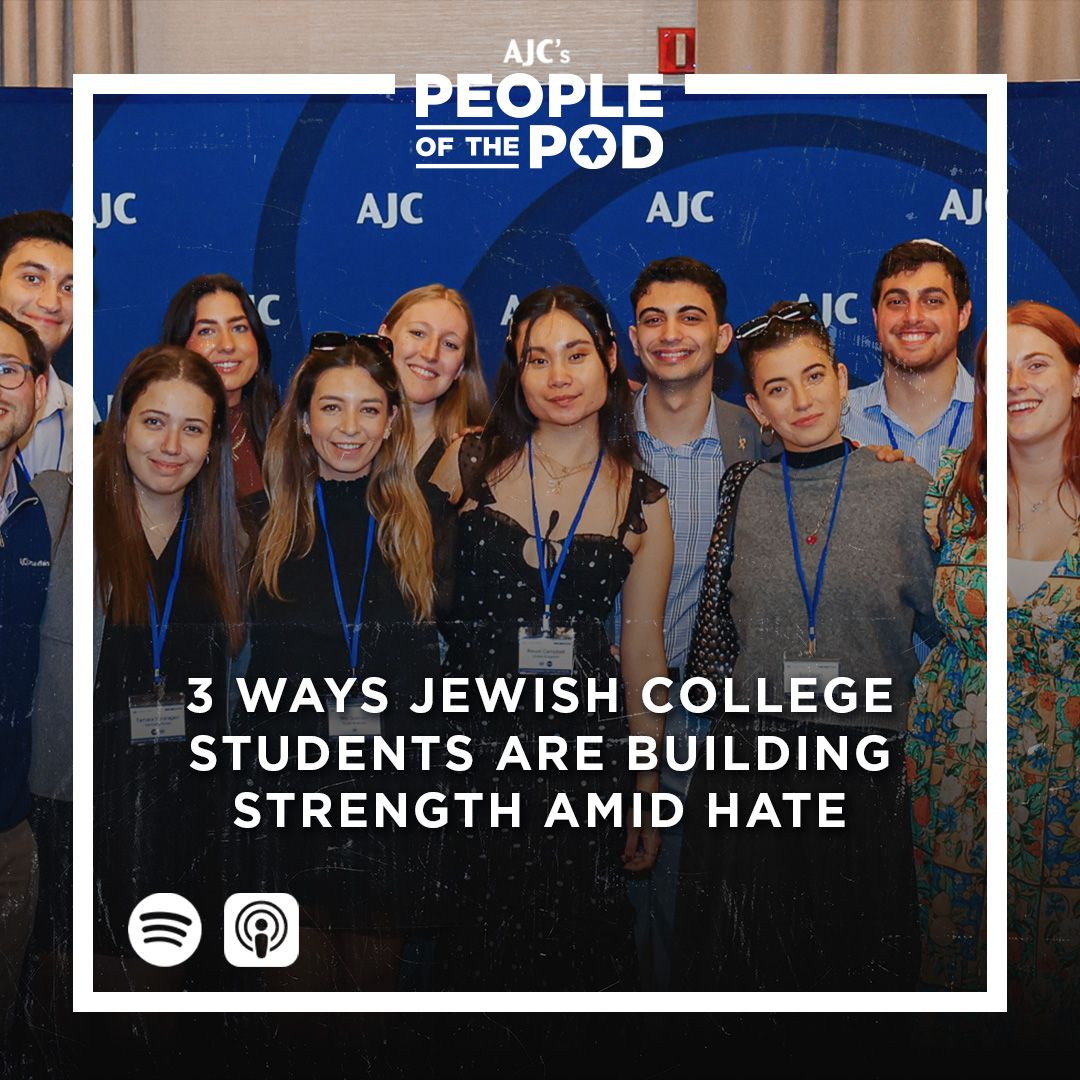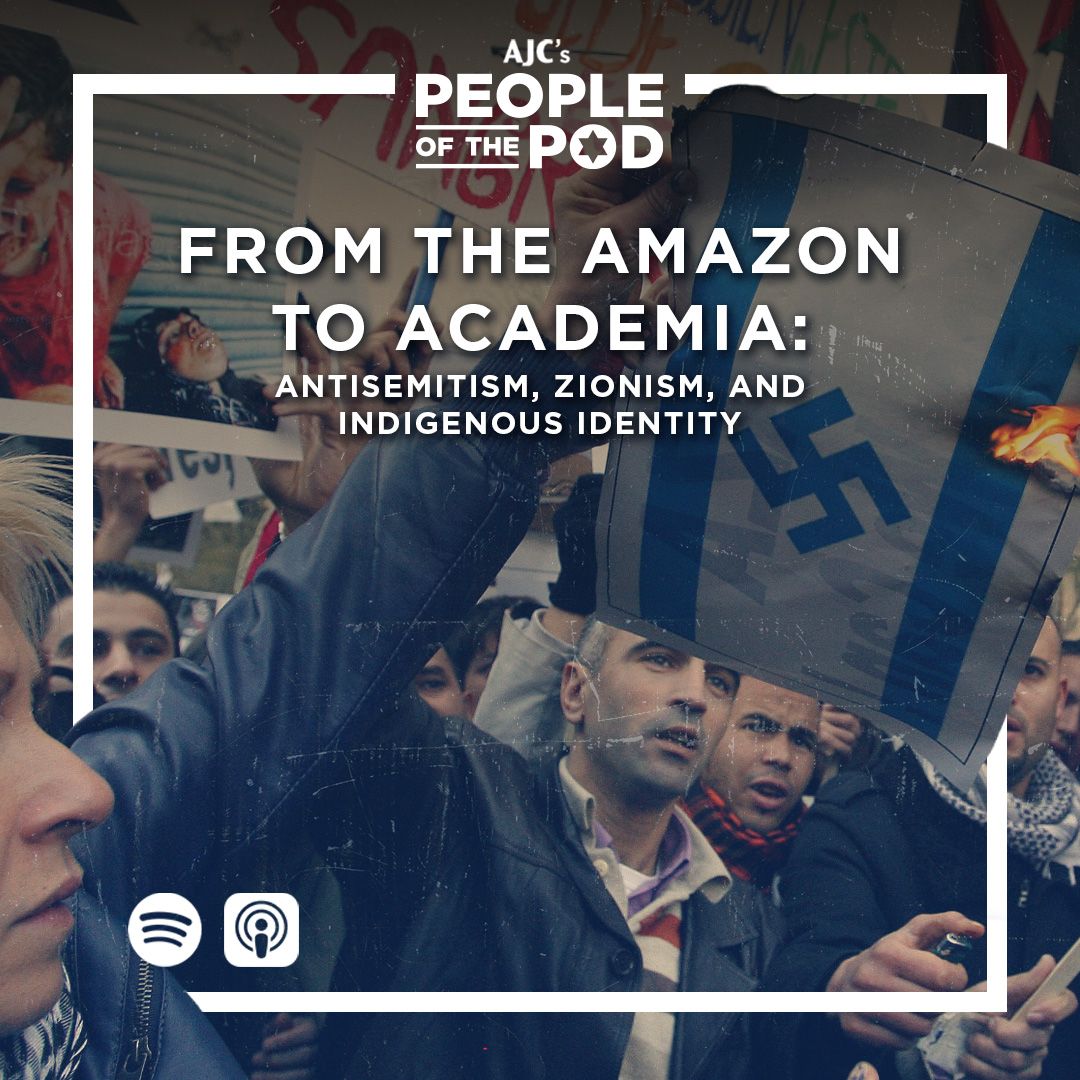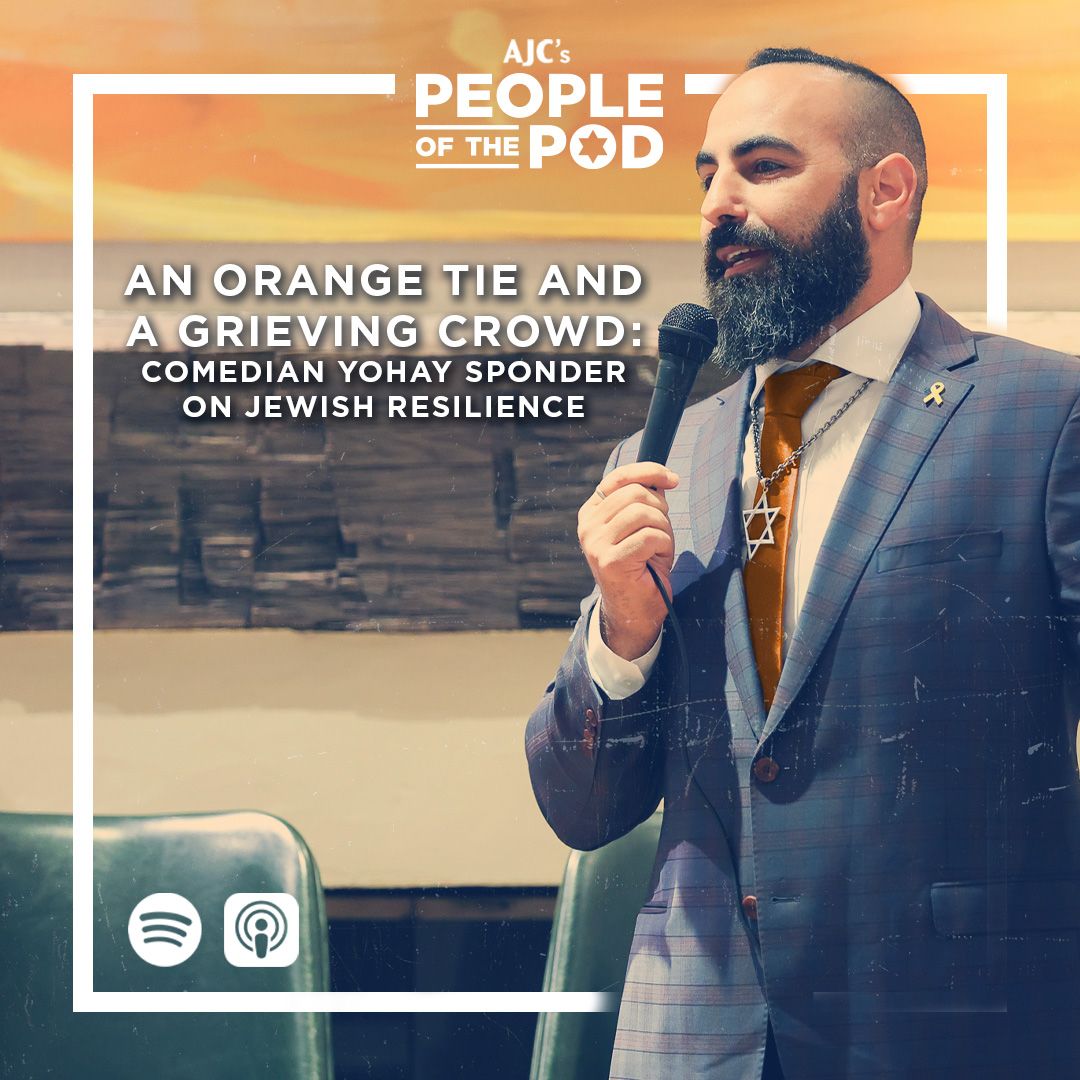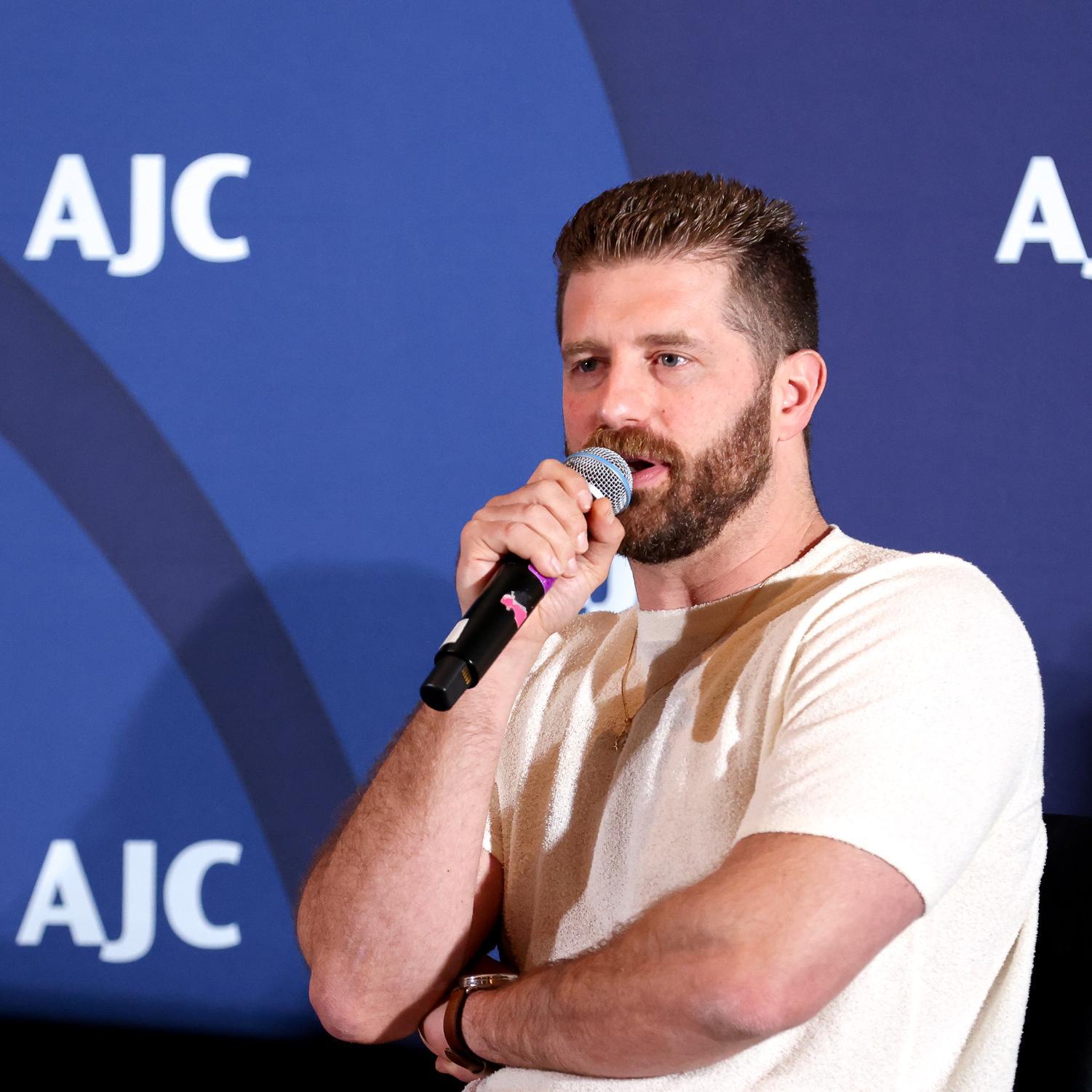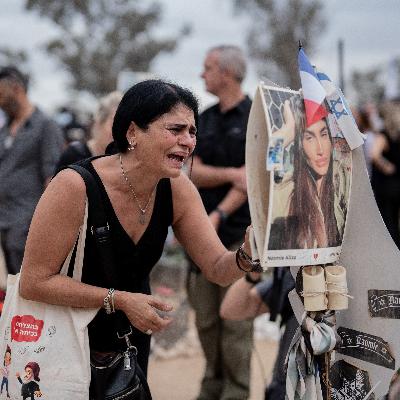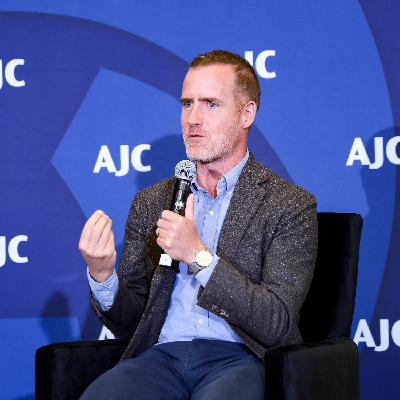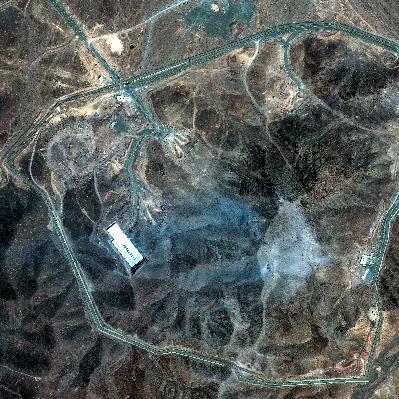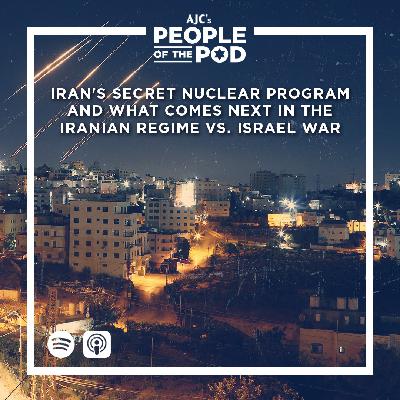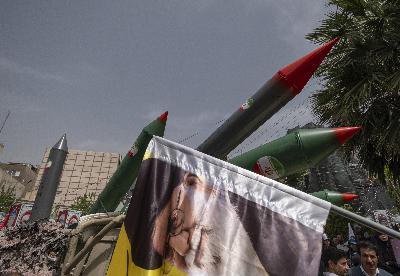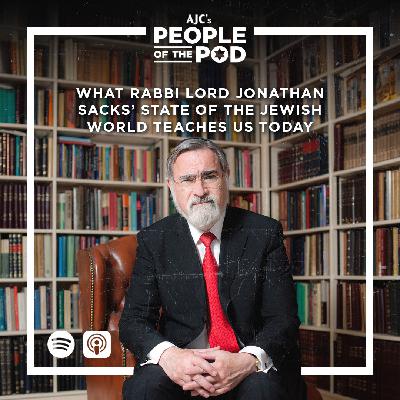War and Poetry: Owen Lewis on Being a Jewish Poet in a Time of Crisis
Description
"The Jewish voice must be heard, not because it's more right or less right, but it's there. The suffering is there, the grief is there, and human grief is human grief."
As Jews around the world mark Tisha B'Av, we're joined by Columbia University professor and award-winning poet Owen Lewis, whose new collection, "A Prayer of Six Wings," offers a powerful reflection on grief in the aftermath of October 7th.
In this conversation, Lewis explores the healing power of poetry in the face of trauma, what it means to be a Jewish professor in today's campus climate, and how poetry can foster empathy, encourage dialogue, and resist the pull of division.
*The views and opinions expressed by guests do not necessarily reflect the views or position of AJC.
Listen – AJC Podcasts:
Follow People of the Pod on your favorite podcast app, and learn more at AJC.org/PeopleofthePod
You can reach us at: peopleofthepod@ajc.org
If you've appreciated this episode, please be sure to tell your friends, and rate and review us on Apple Podcasts or Spotify.
Transcript of the Interview:
Owen Lewis:
Overheard in a New York Restaurant.
I can't talk about Israel tonight.
I know.
I can't not talk about Israel tonight.
I know.
Can we talk about . . .
Here? Sure. Let's try to talk about here.
Manya Brachear Pashman:
On Saturday night, Jews around the world will commemorate Tisha B'av. Known as the saddest day on the Jewish calendar, the culmination of a three week period of mourning to commemorate several tragedies throughout early Jewish history.
As a list of tragedies throughout modern Jewish history has continued to grow, many people spend this day fasting, listening to the book of Lamentations in synagogue, or visiting the graves of loved ones. Some might spend the day reading poetry.
Owen Lewis is a Professor of Psychiatry in the Department of Medical Humanities and Ethics at Columbia University. But he's also the award-winning author of four poetry collections which have won accolades, including the EE Cummings Prize and the Rumi Prize for Poetry.
His most recent collection, A Prayer of Six Wings documents in verse his grief since the October 7 terror attacks. Owen is with us now to talk about the role of poetry in times of violence and war, what it's been like to be a Jewish professor on the Columbia campus, and a Jewish father with children and grandchildren in Israel. And also, how to keep writing amid a climate of rising antisemitism. Owen, welcome to People of the Pod.
Owen Lewis:
Thank you so much, Manya.
Manya Brachear Pashman:
So you opened with that short poem titled overheard in a New York restaurant. I asked you to read that because I wanted to ask whether it reflected how you felt about poetry after October 7.
Did you find yourself in a place where you couldn't write about Israel, but yet you couldn't not write about Israel?
Owen Lewis:
Among the many difficult things of that First Year, not only the war, not only the flagrant attacks on the posters of the hostages one block from where I live, 79th and Broadway, every day, taken down every day, put back up again, defaced. It was as if the war were being fought right here on 79th and Broadway.
Another aspect that made this all so painful was watching the artistic and literary world turn against Israel. This past spring, 2000 writers and artists signed a petition, it was published, there was an oped about it in The Times, boycotting Israeli cultural institutions.
And I thought: artists don't have a right to shut their ears. We all need to listen to each other's grief, and if we poets and artists can't listen to one another, what do we expect of statesmen? Statesmen, yeah, they can create a ceasefire. That's not the same as creating peace. And peace can only come when we really listen to each other.
To feel ostracized by the poetry community and the intellectual community was very painful. Fortunately, last summer, as well as this past summer, I was a fellow at the Yetzirah conference. Yetzirah is an organization of Jewish American poets, although we're starting to branch out. And this kind of in-gathering of like-minded people gave me so much strength.
So this dilemma, I can't talk about it, because we just can't take the trauma. We can't take hearing one more thing about it, but not talk about it…it's a compulsion to talk about it, and that's a way to process trauma. And that was the same with this poetry, this particular book.
I feel in many ways, it just kind of blew through me, and it was at the same time it blew through me, created this container in which I could express myself, and it actually held me together for that year. I mean, still, in many ways, the writing does that, but not as immediately and acutely as I felt that year.
Manya Brachear Pashman:
This book has been praised as not being for the ideological but for the intellectually and emotionally engaged. So it's not it's not something that ideologically minded readers will necessarily be able to connect to, or is it actually quite the opposite?
Owen Lewis:
Well, it's very much written from the gut, from the experience, from in a sense, being on the ground, both in Israel and here in New York and on campus, and trying to keep a presence in the world of poetry and writers. So what comes from emotion should speak to emotion. There are a few wisps of political statements, but it's not essentially a politically motivated piece of writing.
I feel that I have no problem keeping my sympathies with Israel and with Jews. I can still be critical of aspects of the government, and my sympathies can also be with the thousands of Palestinians, killed, hurt, displaced. I don't see a contradiction. I don't have to take sides.
But the first poem is called My Partisan Grief, and it begins on October 7. I was originally going to call the bookMy Partisan Grief, because I felt that American, Jewish, and Israeli grief was being silenced, was being marginalized. And I wanted to say, this is our grief. Listen to it. You must listen to this. It doesn't privilege this grief over another grief. Grief is grief. But I wanted ultimately to move past that title into something broader, more encompassing, more humanitarian.
Manya Brachear Pashman:
And did that decision come as the death toll in Gaza rose and this war kept going and going and the hostages remained in captivity, did that kind of sway your thinking in terms of how to approach the book and frame it?
Owen Lewis:
Yes, but even more than those kind of headlines, which can be impersonal, the poetry of some remarkable Palestinian poets move me into a broader look. Abu Toha was first one who comes to mind Fady Joudah, who's also a physician, by the way. I mean his poetry, I mean many others, but it's gorgeous, moving poetry.
Some of it is a diatribe, and you know, some of it is ideological, and people can do that with poetry, but when poetry really drills down into human experience, that's what I find so compelling and moving. And that's what I think can move the peace process. I know it sounds quite idealistic, but I really think poetry has a role in the peace process here.
Manya Brachear Pashman:
I want to I want to unpack that a little bit later. But first, I want to go back to the protests that were roiling Columbia's campus over the past year and a half, two years. What was it like to be, one, writing this book, but also, teaching on campus as a Jewish professor?
Owen Lewis:
Most of my teaching takes place up at the Medical Center at 168th Street. And there I have to say, I didn't feel battered in any way by what was happening. I had a very shocking experience. I had a meeting that I needed to att

